
The neurologist and senior research at the Amsterdam University Medical Centers’ Alzheimer Center discussed the reasons behind the use of quantitative EEG in assessing Cognition Therapeutics' Alzheimer agent CT1812. [WATCH TIME: 3 minutes]

The neurologist and senior research at the Amsterdam University Medical Centers’ Alzheimer Center discussed the reasons behind the use of quantitative EEG in assessing Cognition Therapeutics' Alzheimer agent CT1812. [WATCH TIME: 3 minutes]

Over the 18-month treatment period, investigators observed no amyloid-related imaging abnormalities along with continued slowing of disease progression in patients with mild to moderate Alzheimer disease.

The chief medical officer at Alzheon provided perspective on the next steps for ALZ-801 following a successful phase 2 study of patients with APOE ε4/4 or APOE ε3/4 genotype. [WATCH TIME: 2 minutes]

Susan Abushakra, MD, chief medical officer at Alzheon, provided insight on findings from a phase 2 study in which ALZ-801 showed beneficial effects on cognition, Aß 42/40, and brain atrophy.

The president and chief executive officer of INmune bio provided perspective on the need to diversify the Alzheimer treatment landscape and the potential role of TNF inhibitors like XPro1595.

The professor of clinical geriatric epidemiology at Karolinska Institutet discussed strategies for lowering the risk of Alzheimer disease, and the new ways to approach prevention. [WATCH TIME: 4 minutes]

The professor of clinical geriatric epidemiology at Karolinska Institutet discussed a subgroup analysis of the FINGERS trial and the clinical utility of the precursor to serum brain-derived neurotrophic factor. [WATCH TIME: 3 minutes]
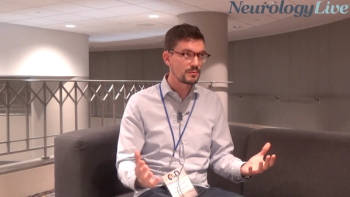
The cognitive and behavioral neurology fellow at Pitié-Salpêtrière Hospital in Paris, France, provided perspective on the reasons to not solely rely on anti-amyloid treatments to treat Alzheimer disease. [WATCH TIME: 3 minutes]
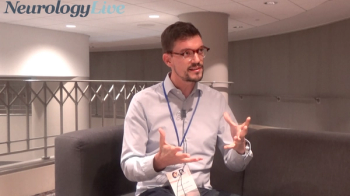
The cognitive and behavioral neurology fellow at Pitié-Salpêtrière Hospital in Paris, France, provided background on a study presented at CTAD 2022 assessing the efficacy of prominent, up-and-coming anti-amyloid therapies. [WATCH TIME: 7 minutes]

The professor of clinical geriatric epidemiology at Karolinska Institutet provided perspective on the FINGERS trial, the first study to show it is possible to prevent cognitive decline using a multidomain lifestyle intervention.
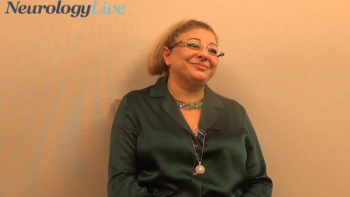
The chief medical officer of Alzheon detailed the phase 2 safety findings of ALZ-801, and the lack of amyloid-related imaging abnormalities observed. [WATCH TIME: 3 minutes]

James Galvin, MD, MPH, director of the Comprehensive Center for Brain Health at the University of Miami Miller School of Medicine, provided insight on the unmet needs for dementia with Lewy bodies, and whether success in Alzheimer disease can help.

Mind Moments®, a podcast from NeurologyLive®, brings you an exclusive interview with Marwan Sabbagh, MD, FAAN. [LISTEN TIME: 21 minutes]
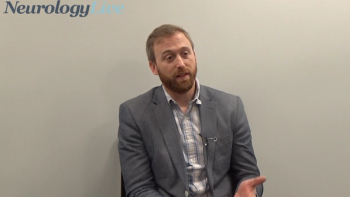
The chief executive officer and co-founder of Linus Health discussed screening tools for early cognitive decline and overcoming the complexities with using new-age technology. [WATCH TIME: 3 minutes]

The chief medical officer of Alzheon detailed the efficacy, safety, and potential of ALZ-801, an investigational anti-amyloid therapy being assessed in high-risk individuals with early Alzheimer disease.
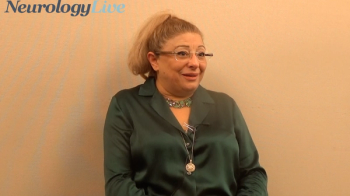
The chief medical officer of Alzheon discussed the impact a therapy like ALZ-801 can have on the overall Alzheimer community considering its effects on carriers of APOE e4 alleles. [WATCH TIME: 3 minutes]

Bjoern Schelter, MD, Data Analytics and Biostatistics lead at TauRx, provided background on the efficacy, safety, and role of HMTM as a treatment for cognition in pre-Alzheimer disease stages like mild cognitive impairment.

Howard Fillit, MD, founding executive director of the Alzheimer’s Drug Discovery Foundation, provided perspective on how ADDF and others are advancing the detection and treatment of Alzheimer disease.

The chief executive officer and co-founder of Linus Health provided perspective on the state of clinical trials for Alzheimer disease, and how technology can play a major role in advancing therapeutics going forward. [WATCH TIME: 4 minutes]
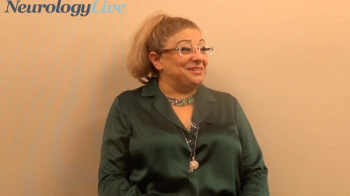
The chief medical officer of Alzheon provided perspective on new phase 2 findings assessing the investigational agent ALZ-801 in patients with early Alzheimer disease and a genetic predisposition. [WATCH TIME: 5 minutes]
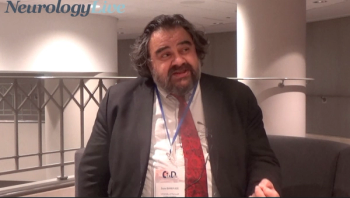
The professor of dementia and executive dean of the Faculty of Health at the University of Plymouth provided perspective on the way to attack Alzheimer agitation and why drug solutions often fall short. [WATCH TIME: 3 minutes]
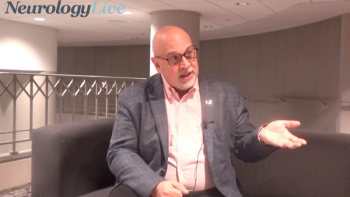
The director of the Comprehensive Center for Brain Health at the University of Miami Miller School of Medicine detailed the need for improved biomarkers of dementia with Lewy bodies and whether research in Alzheimer disease helps propel the field. [WATCH TIME: 3 minutes]
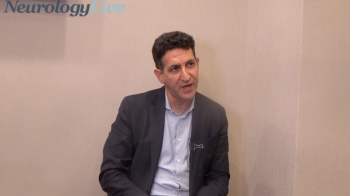
The behavioral neurologist at the Barrow Neurological Institute detailed the significance of low rates of ARIA found in lecanemab, and the direction of anti-amyloid therapies in the future. [WATCH TIME: 4 minutes]

The professor of dementia and executive dean of the Faculty of Health at the University of Plymouth provided perspective on the SYMBAD trial, and eliminating the use of mirtazapine and carbamazepine as medications to treat Alzheimer agitation.
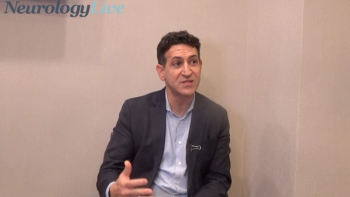
The behavioral neurologist at the Barrow Neurological Institute provided perspective on the safety profile of lecanemab and the importance of a low incidence of amyloid-related imaging abnormalities. [WATCH TIME: 3 minutes]

Over a 12-week treatment period, investigators found no significant differences in mean Cohen Mansfield Agitation Inventory scores between mirtazapine and placebo, with similar rates in adverse events.

The senior research scientist at the Institute for Systems Biology spoke about changing the perception of clinical trials for Alzheimer disease research based on the COCOA trial presented at the 2022 CTAD conference. [WATCH TIME: 2 minutes]

Across 3 trials in patients with Alzheimer disease agitation, brexpiprazole doses of 2 or 3 mg/day was safe and showed a statistically significant improvement vs placebo in agitation.
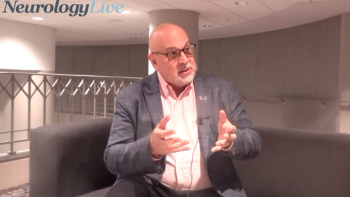
The director of the Comprehensive Center for Brain Health at the University of Miami Miller School of Medicine discussed the treatment differences and unmet needs between dementia with Lewy bodies and Alzheimer disease. [WATCH TIME: 4 minutes]

The senior research scientist at the Institute for Systems Biology spoke about his presentation on multimodal clinical and lifestyle interventions that improve cognitive outcomes at the 2022 CTAD conference. [WATCH TIME: 4 minutes]